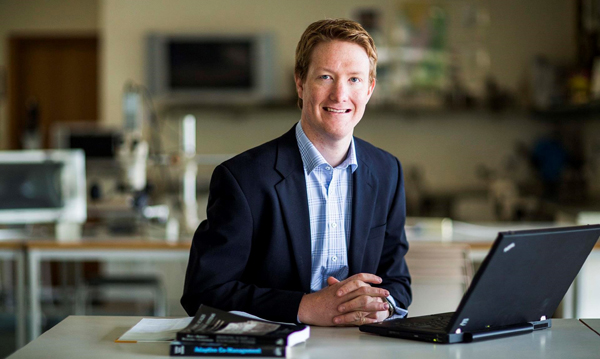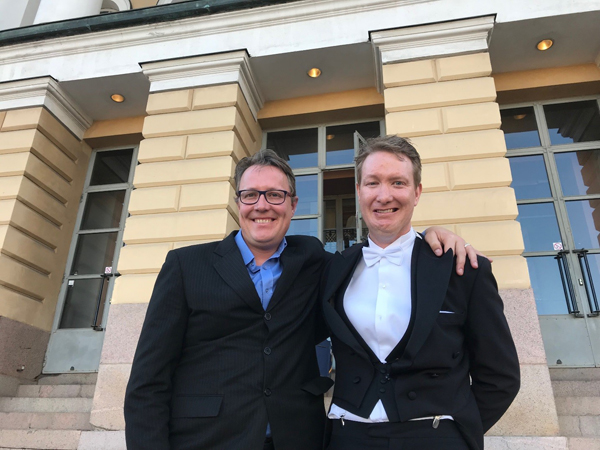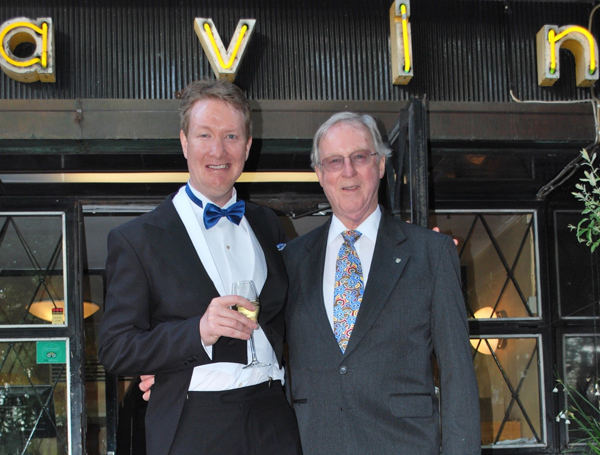31 July 2019

Professor Christopher Raymond
Artist
Professor in Sustainability Science, University of Helsinki
Bachelor of Applied Science (Environmental Management)
Bachelor of Applied Science (Environmental Management), Honours
Doctor of Philosophy (Ph.D.), Human Geography
Christopher Raymond spent his childhood years traipsing through the rolling Adelaide Hills wilderness. It was here amongst the untamed gum trees, winding paths, and squawking magpies, his love for nature and the environment was born.
These experiences, bolstered by parents who encouraged him to consider the environmental consequences of his actions, which in turn promoted a strong environmental ethic and a set of biospheric values, led to his lifelong career in environment and sustainability.
Now on the other side of the world, in a remarkably colder environment, Christopher spend his days at the University of Helsinki as a Professor in Sustainability Science (Sustainability Transformations and Ecosystem Services) leading the Social Values and Sustainability Transformations Research Group.
The Group is team of nine passionate researchers investigating the relationships between humans and nature, actively engage citizens, industry, NGOs and government agencies in the design, implementation and monitoring of environmental initiatives for a greener future.
This includes the ENVISION Project (an inclusive approach to assessing integrative scenarios and visions for protected area management), a 3-year project funded through the 2017-2018 Belmont Forum and BiodiveERsA joint call under the BiodivScen ERA-Net COFUND programme, and the VIVA-PLAN Project (a sustainable spatial planning framework for engaging diverse actors and citizens in revitalising in-between spaces for social inclusion, biodiversity, and well-being).
”Through all these different initiatives I aim to develop new concepts and techniques for integrating the diverse values of nature – including economic, socio-cultural and health values – into environmental planning and decision-making,” Chris says.
“The concepts and techniques my team and I develop aim to enable more diverse voices – particularly those of vulnerable groups – to have a say in environmental planning and decision-making, supporting the United Nations Sustainable Development Goals (i.e., Reduced Inequalities, Life on Land).
Chris and his team’s work towards the mission of connecting people, place and prosperity is more vital than ever, as one of the most pressing issues facing the world at the moment is our growing population.
Chris explains our continued and rising thirst for natural resources, combined with the assumption that new technology and the economy will fix our problems, is detrimental to our current way of life.
“Our increasing levels of consumption are having detrimental and increasingly catastrophic effects on the global state of biodiversity and ecosystems,” Chris says.
“As well as the climate we all enjoy for our basic survival. “At individual and organisational levels, we need to find innovative ways of living within planetary boundaries and creating a safe operating space for humanity to thrive over the centuries to come.
“We also need a personal rethink of how our individual actions contribute too much of the environmental destruction we now see across the globe.”
Chris also mentions this will require de-growth and a radical shift in political ideologies particularly in Australia concerning how we use and manage natural resources.

In his travels, he has learnt that the Nordic region, in particular Finland, is one of the more supportive cultures of education in the world, which fosters a healthy respect for nature and high level of trust evidenced-based research across local, regional and national governments.
“My experiences in the Nordic region demonstrate to me that the political and policy context to education and environmental management require a major rethink in Australia,” Chris says.
“The funding for environmental research in the Nordic regions is more enduring and stable in this part of the world, making it easier to support a research team in environment and sustainability.
“As a case in point, the previous President of Finland attended my inaugural lecture as professor. A mutual respect across politics, science and society provides for a collegial and cohesive working environment that is conducive to internationally leading and policy-relevant research.”
Also at his inaugural lecture at the University of Helsinki was Tom Pearce of the Pearce Family, scholarship donors and valued supporters of the University. During his studies Chris received the Jean Pearce Environmental Scholarship which Tom Pearce, the late Jean Pearce and family generously sponsored.
A decade later this connection has blossomed into a lasting friendship with the pair meeting on an annual basis to follow-up on the latest world events, and more recently saw Tom travel halfway across the world to support Chris at this milestone in his career.

“The scholarship was incredibly important to me because it enabled me to study full-time without the pressure of having to work on unrelated issues on the side,” says Chris.
“Tom and family have also changed my worldview concerning financial contributions to society - we all have an important responsibility to give within our means to important projects of the public good, such as the environment, education, health or justice.
“We all have a responsibility to be part of the solution in these areas.”




